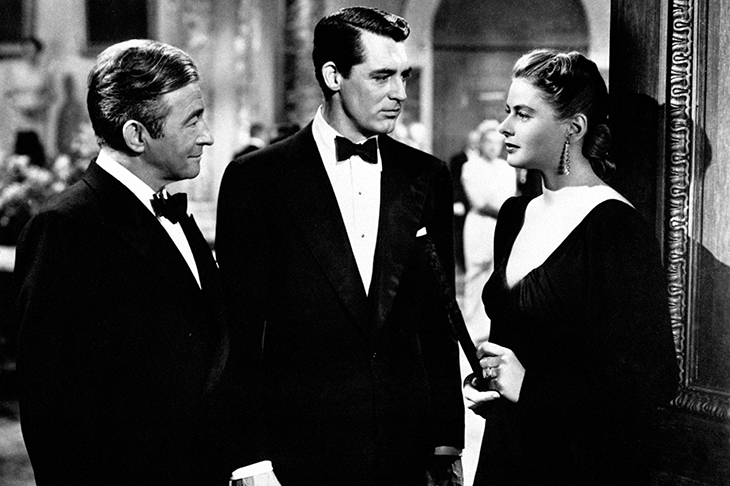What do the following filmmakers have in common: Victor Fleming, John Ford, Henry Hathaway, Howard Hawks, Alfred Hitchcock, Ernst Lubitsch, Lewis Milestone, Otto Preminger, Josef von Sternberg, George Stevens, Charles Vidor, King Vidor, Orson Welles and William Wyler? I know, it’s a toughie — and it isn’t much less tough if you consult IMDb. But the answer is that all of them made pictures from scripts that had been worked on by the same man. His name was Ben Hecht and, even today, 125 years after his birth, he’s regarded as the greatest screenwriter the movies ever had.
If you want some idea of how great that is, consider that between 1937 and 1940 Hecht wrote, co-wrote or rewrote more than 20 pictures — among them Gone With the Wind, His Girl Friday, It’s a Wonderful Life, Wuthering Heights, Nothing Sacred, The Goldwyn Follies and Gunga Din. I doubt whether there’s a film buff alive who doesn’t count at least one of those titles in their top ten.
Yet though Hecht believed that ‘90 per cent of the success of a movie lay in the writing of the script’, he wasn’t impressed with what he called ‘stirring up the bilge with my fountain pen… and rescuing, as they call it, the produce’. A hacked-off hack, Hecht kept a low profile. ‘Half my aversion to writing movies is removed,’ he told David Selznick, ‘if I don’t have to see my name on them.’
Hecht was born on the Lower East Side, although he always said that his life didn’t start until 1910 when, at 17, he fetched up in Chicago looking for work. The way he got his first gig, on the Daily Journal, will have today’s young media hopefuls weeping. A ‘red-nosed’ editor shook his hand, said he was going out to lunch and suggested that Hecht write him a dirty poem. Six sordid stanzas later, he was signed on the spot. Bliss was it in that porn to be alive. For Hecht took one look at what Adina Hoffman’s brisk, scintillating biography calls the Journal’s ‘cavernous space, dense with long tables, desk, typewriters and men in shirtsleeves — some yelling, some sleeping with their hats pulled low over their eyes’ and fell in love.
He started out as a snapper, zipping through the city from one crime scene to another. A born reporter, he thought nothing of shinning up drainpipes or crawling through windows to get a story. One night he blocked up a chimney to force a grieving family out of their home the better to filch a portrait of their recently murdered daughter. Generations of audiences have laughed at the low-life morals that motor Hecht’s and Charles McArthur’s hit newspaper drama The Front Page. Hoffman makes clear that its gags came from life.
Hecht’s invitation to Hollywood arrived courtesy of one of the most famous wires ever:
WILL YOU ACCEPT THREE HUNDRED PER WEEK TO WORK FOR PARAMOUNT PICTURES? ALL EXPENSES PAID. THE THREE HUNDRED IS PEANUTS. MILLIONS ARE TO BE GRABBED OUT HERE AND YOUR ONLY COMPETITION IS IDIOTS. DON’T LET THIS GET AROUND.
So wrote Herman Mankiewicz, a fellow reporter and drinking buddy who shared Hecht’s need to speak comedy to power. Between them, they wrote the bulk of the most quoted lines from Hollywood’s golden age. No mean phrase-turner herself, Hoffman calls their humour ‘ham-on-Jewish-wry’.
Because, for all its Tinseltown glamour, this book isn’t part of Yale’s estimable series of Jewish Lives for nothing. Hecht might have been a ‘pork-chop eating, Christmas tree-lighting, dyed-in-the-American-wool wise guy’. But like Molière’s Monsieur Jourdain, who realises he’s been speaking prose all his life, he turned on a shekel in 1939 and overnight ‘became a Jew and looked on the world with Jewish eyes’.
It was as if, Hoffman says, ‘Germany’s invasion of Poland had somehow altered his DNA’. All of a sudden the jester turned serious, writing articles about the Nazi terror and the Jews’ stateless state. Within a few years he was baiting Blighty. As he told the addressees of his ‘Letter to the Terrorists of Palestine’:
Every time you blow up a British arsenal or let go with your guns and bombs at the British betrayers and invaders of your homeland, the Jews of America make a little holiday in their hearts.
Friends and colleagues were shocked by Hecht’s newfound love of violence and it fell to Mankiewicz to explain: ‘Six years ago Ben found out that he was a Jew, and now he behaves like a six-year-old Jew.’
But though Hecht’s Zionism infected his theatrical work (A Flag is Born, on which the young Brando got his first Broadway break, should have been called ‘A Drag is Born’), Hollywood wouldn’t let it happen to the movies he worked on. True, his script for Hitchcock’s Notorious can be read as a political parable in which a flighty young woman realises the world isn’t only about her. But it is first and foremost a sizzling romantic thriller — one in which, despite the presence of Ingrid Bergman and Cary Grant, the most sympathetic character is Claude Rains’s wimpy Nazi. It is, in other words, properly adult entertainment.
In 1968, a few years after Hecht’s death, Jean-Luc Godard called him ‘a genius who invented 80 per cent of what is used in Hollywood movies today’. Would that it were still true.






Comments